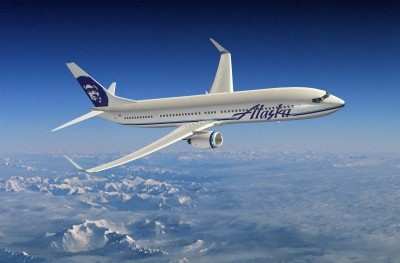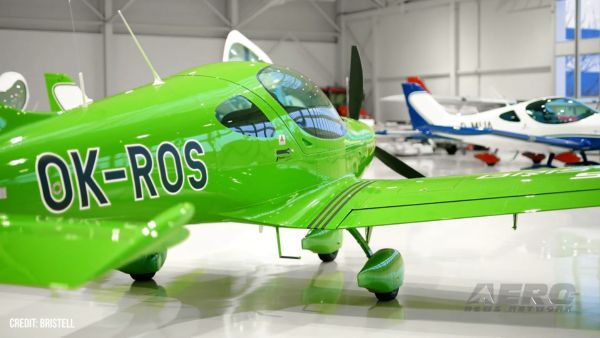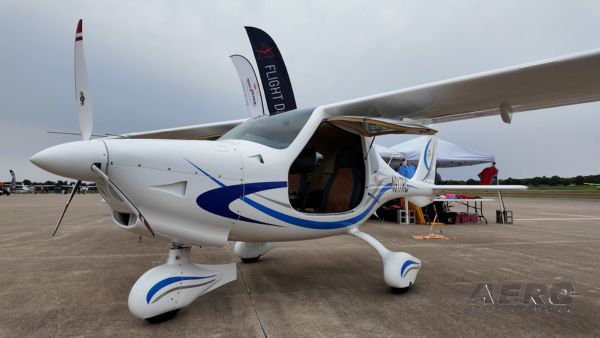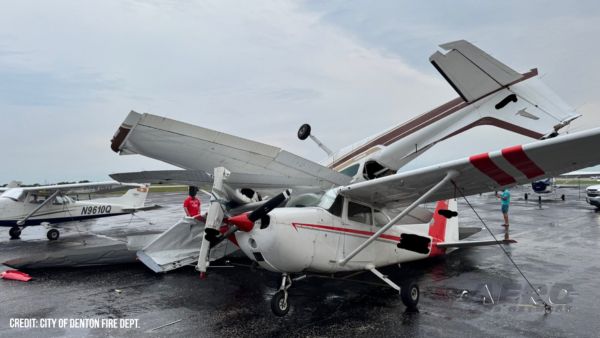Sun, Sep 15, 2013
Report By International Council On Clean Transportation Is First To Quantify Airline Fuel Performance
In a report released Monday by the International Council on Clean Transportation, a nonprofit research organization based in Washington, D.C, Alaska Airlines is ranked No. 1 in fuel efficiency. The ICCT study is the first to quantify fuel performance for U.S. airlines. Alaska, along with its regional partner Horizon Air, led all 15 mainline U.S. carriers as the most fuel-efficient airline operating in the United States in 2010, outperforming the least fuel-efficient carrier by 26 percent.

"We have made significant investments in our fleet, technology and processes to improve our fuel performance, which is a key part of Alaska's commitment to be the airline industry leader in environmental stewardship. These sustainability efforts also help us keep our costs down in order to provide better value for our customers," said Keith Loveless, Alaska Air Group's executive vice president and general counsel. "We're proud and gratified to see our efforts validated by such an independent and respected source as the International Council on Clean Transportation."
The ICCT study looked at fuel-consumption data reported annually by airlines to the U.S. Bureau of Transportation Statistics. The study employed methodology developed by a team of researchers at the Federal Aviation Administration's National Center of Excellence for Aviation Operations Research (NEXTOR) at the University of California, Berkeley, to evaluate fuel efficiency based on passenger miles between origin and destination as well as airports served and/or flight frequency. Researchers looked at fuel burned and identified inefficiencies, such as the use of older technology, circuitous routing and taxiing with two engines instead of one.
By improving its fuel efficiency in recent years, Alaska Airlines reduced its carbon emissions by 30 percent (measured by flying one passenger one mile). This reduction was accomplished through a variety of measures—most notably by migrating to exclusively flying the Boeing 737 and Bombardier Q400, the most fuel-efficient aircraft in their classes.
In August 2013, Alaska became the first airline to sign an agreement with Hawaii BioEnergy LLC to purchase sustainable biofuel for its Hawaii flights, and operated 75 passenger flights powered by a 20 percent biofuel blend in November 2011. These flights demonstrated the viability and need for an adequate, affordable and sustainable supply of alternative aviation fuel. The biofuel project grew out of Alaska Air Group's involvement in Sustainable Aviation Fuels Northwest, the first U.S. regional group of its kind to study alternative aviation fuels.
More News
Global Navigation Satellite System (GNSS) GNSS refers collectively to the worldwide positioning, navigation, and timing determination capability available from one or more satellit>[...]
Aero Linx: ShortWingPipers.Org "The mission of ShortWingPipers.Org is to provide an international on-line source of information and communication for owners and enthusiasts of Shor>[...]
“This finding by Perseverance, launched under President Trump in his first term, is the closest we have ever come to discovering life on Mars. The identification of a potenti>[...]
Dave Juwel's Aviation Marketing Stories ITBOA BNITBOB ... what does that mean? It's not gibberish, it's a lengthy acronym for "In The Business Of Aviation ... But Not In The Busine>[...]
Also: Commercial A/C Certification, GMR Adds More Bell 429s, Helo Denial, John “Lucky” Luckadoo Flies West CAF’s Col. Mark Novak has accumulated more than 1,000 f>[...]
 ANN's Daily Aero-Term (09.11.25): Global Navigation Satellite System (GNSS)
ANN's Daily Aero-Term (09.11.25): Global Navigation Satellite System (GNSS) ANN's Daily Aero-Linx (09.11.25)
ANN's Daily Aero-Linx (09.11.25) Aero-News: Quote of the Day (09.11.25)
Aero-News: Quote of the Day (09.11.25) Aero-FAQ: Dave Juwel's Aviation Marketing Stories -- ITBOA BNITBOB
Aero-FAQ: Dave Juwel's Aviation Marketing Stories -- ITBOA BNITBOB Airborne 09.10.25: 1000 Hr B29 Pilot, Airplane Pile-Up, Haitian Restrictions
Airborne 09.10.25: 1000 Hr B29 Pilot, Airplane Pile-Up, Haitian Restrictions



